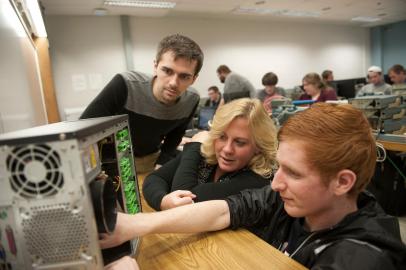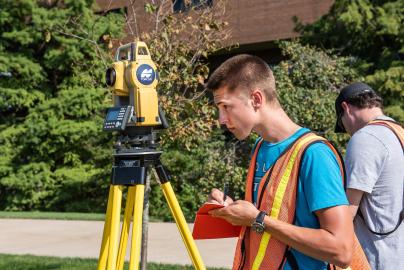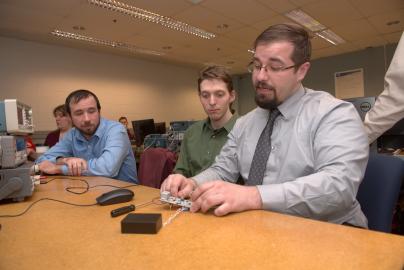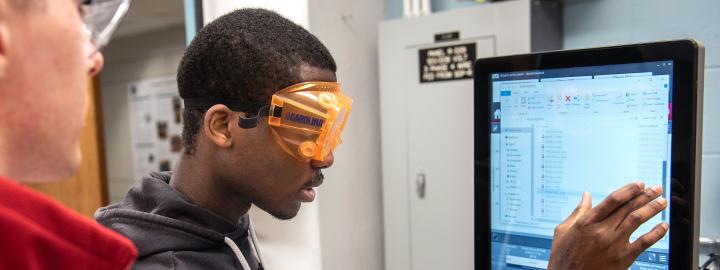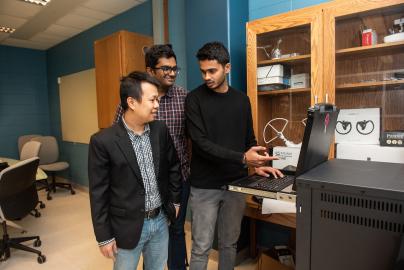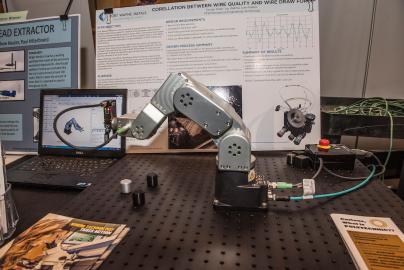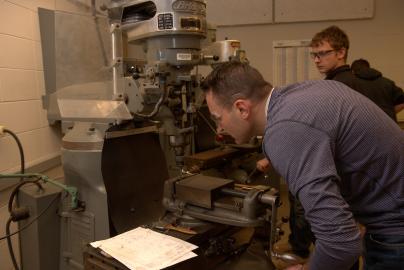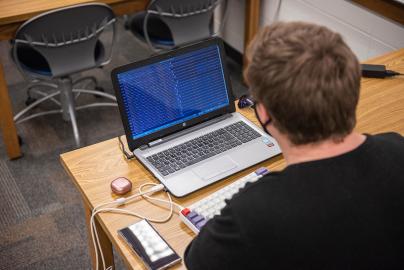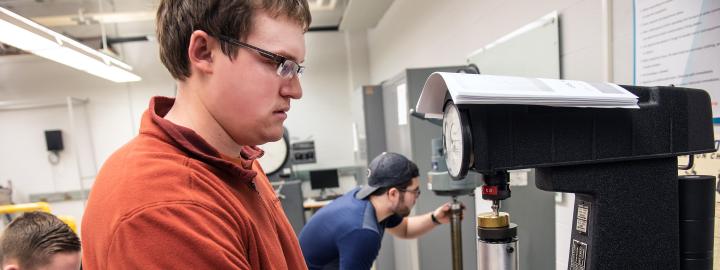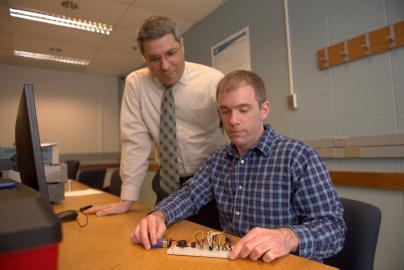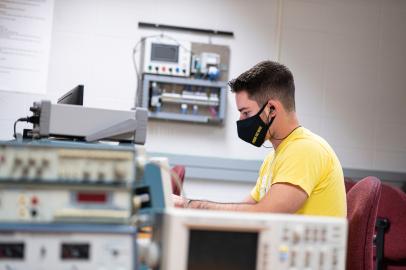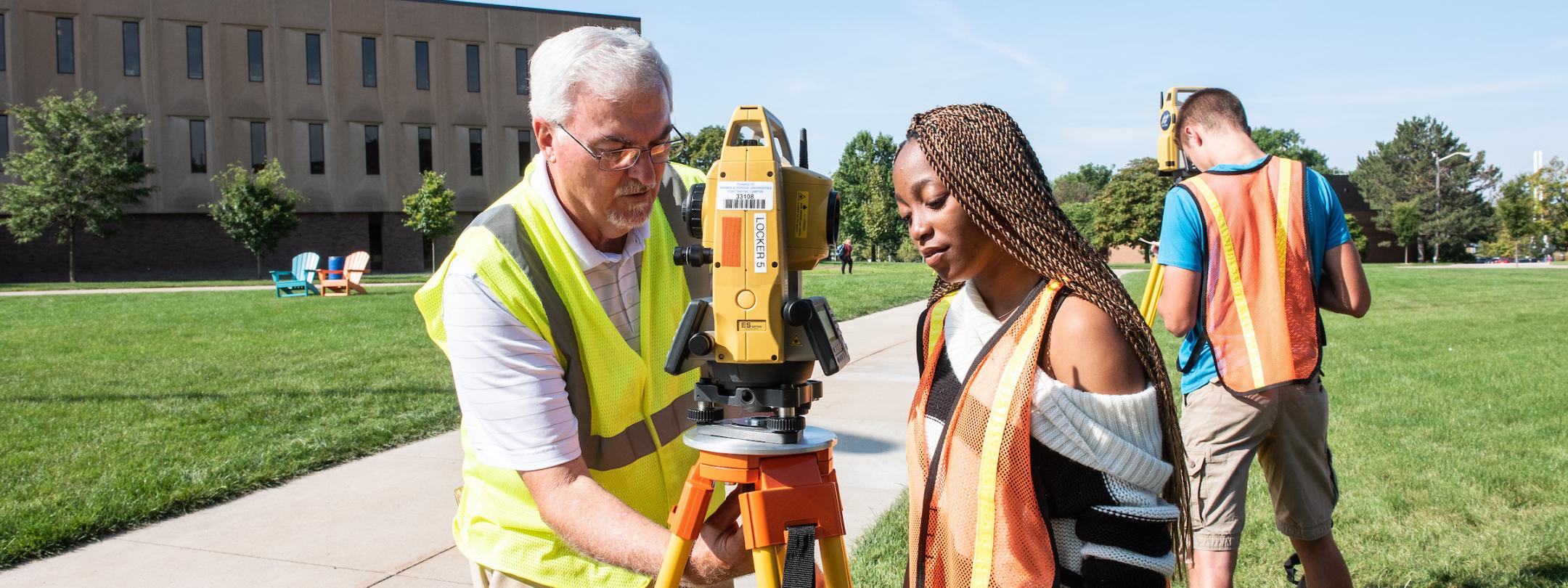
Polytechnic Programs
Tinkerers, builders, and experimenters—your curiosity can change the future.
Every new gadget began as an innovative idea, a fleeting curiosity that became a perpetual thought that begged to be brought to life. Big and small. Recreational to life changing. It all starts with that spark of curiosity.

Electrical Engineering Technology (A.S.)
This degree is available only to currently enrolled PFW students. Please get in touch with your academic advisor to learn how to change to this degree.
This two-year program will teach you the basic engineering principles needed to create useful products and processes in electrical and electronic systems. Like all our offerings, this program emphasizes
practice-based learning through hands-on laboratory applications using state-of-the-art equipment.

Program
Highlights
Program Highlights
- The ability to apply theories and principles of math and science
- Experience with designing systems, components, and processes for engineering technology problems
- Experience conducting, analyzing, and interpreting experiments
- Support from the Mastodon community
- A prestigious Purdue degree
career and salary data
How far will you go?
General labor market and salary data are provided by Lightcast via O*NET and may not represent the outcomes experienced by Purdue Fort Wayne graduates in these programs. Purdue Fort Wayne graduates in these programs may earn salaries substantially different or less than the amounts listed. Salary and employment outcomes vary by geographic area, previous work experience, education, and opportunities for employment that are outside Purdue Fort Wayne’s control. Purdue Fort Wayne does not guarantee employment placement, salary level, or career advancement.
Accreditation
The Electrical Engineering Technology degree is accredited by the Engineering Technology Accreditation Commission of ABET.
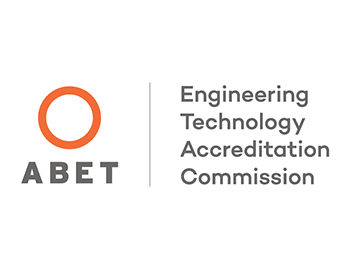
Program Educational Objectives
- Demonstrate fundamental and emerging mathematical, scientific, engineering, and technical skills necessary to function as an electrical, electronic, computer, or engineering technician
- Demonstrate knowledge, skills, and techniques in the building, testing, operation, and maintenance of electronic/computer systems
- Demonstrate continuous learning, either on-the-job or in a B.S. degree
- Demonstrate communications skills necessary to function effectively as a member of an engineering team
- Demonstrate an awareness of the social, ethical, and global impact of their work upon the profession and society
Learn more about student outcomes and graduation and enrollment data here.
- Aerospace and Electronic Systems Engineer
- Communications Engineer
- Computer-Controlled Equipment Specialist
- Control Systems Specialist
- Electrical Engineer
- Electrical Engineering Technician
- Industrial Electronics Specialist
- Medicine or Biology Engineer
- Robots and Automation Engineer
